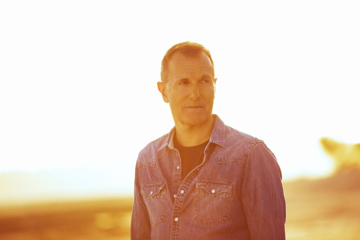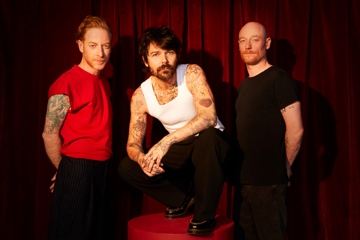Indie-Con: Briggs, Jen Cloher & More Kick Off Day Two With Powerful Industry Insight
“People think I’m joking, but we literally thought we were committing career suicide with 'Reclaim Australia'.'
Day two of Indie-Con kicked off with a bang today as a star-studded panel of artists-turned-label operators dissected the art of managing the creative and business sides of their double life.
Here are the best talking points from the conversation:
Briggs (Bad Apple Records)
"When I created Bad Apples music, I had just seen there was such a lack of indigenous voices, especially in rap music…One of the things with being indigenous is overcoming that aspect of shame…I wanted to remove that and I felt like no other label in my realm understood the family elements that an indigenous community has."
Don't miss a beat with our FREE daily newsletter
"People think I'm joking, but we literally thought we were committing career suicide [with Reclaim Australia] – 'You've dissed too many white people, you’re gonna kill your fanbase, the country is full of white people and there's not that many black people buying records – you're done'. The way that it's been received, I think people have seen the honesty and vulnerable.
Ben Martin (Golden Era Records)
"Golden Era used to be based out of a place that used to look a crack house. One room was dedicated to merch and there was a studio in there that constantly smelt like weed, and people would constantly come in and out."
Jen Cloher (Milk Records)
"My biggest issues often with independent labels is they say, 'We're gonna go 50/50 on the master licence for an album you paid to make'. And I'm like, 'Hang on, I paid to make this record and now I'm going to go 50/50?'"
"You can’t call on favours forever."
"It has been a real struggle, because I am the label manager at Milk Records and it's actually taken quite a long time – about four years – for the business to actually turn over enough of a profit margin to pay me for doing that job. So this year I started to take a pretty meagre but somewhat of a wage."
"We didn't want [Milk Records] to be known as 'Courtney Barnett's label'."
"I'm talking about marriage equality and queer politics and I feel really uncomfortable talking to media. To put yourself in that place of being uncomfortable is quite scary – what if women hating, gay hating people find out where I live and throw bricks through my window? Those are the thoughts that go through your head when you come out and start to say something about where you're from and what's going on with your world view, but I think that's really important."
Joanna Syme (Pieater)
"One of the hardest things to learn is that you can't do it all. You start a label because you love music and want to share it and you're constantly around awesome music and then there's the realisation that, based on your size, you can't work with every artist you want to work with. And you've got to protect the other artists you're working with – if you spread yourself too thin, the other artists will suffer."
"The more you learn, the more you learn you don't know."
Merida Sussex (Stolen Recordings)
"One thing is transparency with the money, because it was a mystery to us - my band when we were 21-22 - what they spend the money on."
"One of the benefits of being an artist and running a label is you've experienced what they're experiencing. You know that this is their life and you have a lot of responsibility."






